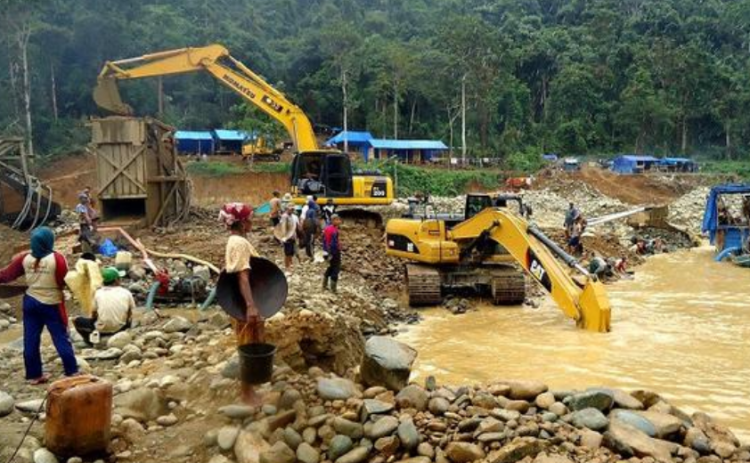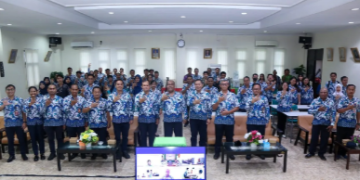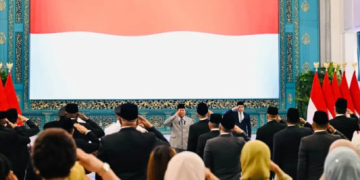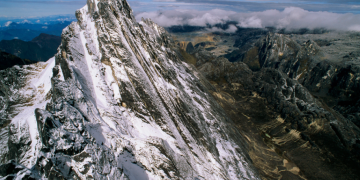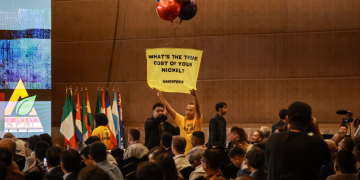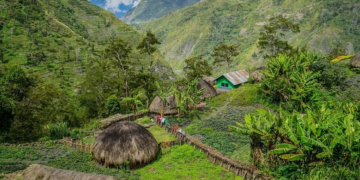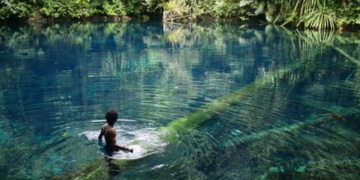Papuaaround.com – Illegal gold mining in West Papua has reached a critical and dangerous phase. The operations are no longer small-scale traditional activities but have grown into a highly organized and large-scale practice that threatens ecosystems, disrupts local communities, and poses a severe ecological disaster risk.
Deep in the Arfak Mountains of Manokwari Regency, hundreds of makeshift huts stand hidden within dense forests. Reaching the location requires an exhausting five-to-six-hour journey across steep, muddy terrain, with landslides blocking access along the way. The damaged roads themselves are early signs of the environmental toll caused by ongoing mining in the upstream area.
At the site, heavy machinery operates alongside logistical networks and even advanced facilities such as Starlink internet connections. Such evidence points to the involvement of well-financed backers behind the illegal activity. Local residents revealed that the mining area has drawn workers from outside Papua for at least the past five to six years, particularly from North Sulawesi and Java.
The situation has triggered public concern. Many residents have reported the mining operations to both regional and national authorities. Manokwari Regent Hermus Indou explained that outside financiers often persuade indigenous landowners to give consent for mining, creating conflict between communities and government. “They argue that people need to survive, but in reality, many are only thinking about personal profit,” he said.
At the heart of the operation, along the Wariori River, the scale of destruction is evident. Massive piles of rock waste tower like artificial hills, and deep pits have turned into green-colored ponds, suggesting the possible use of toxic chemicals. Rows of huts accommodate groups of 10 to 12 miners each, while makeshift stalls sell basic supplies with transactions often conducted using gold flakes. Reports also suggest the presence of prostitution camps, underlining the extent of the settlement that has formed inside the forest.
One miner, identifying himself only as Toto, claimed that each group can extract between 500 grams and 1 kilogram of gold per month. At an average price of 1.3 million rupiah per gram, even the minimum output represents profits of around 650 million rupiah monthly for a single group. With hundreds of groups active, the losses to the state and the scale of gold leaving the region are estimated to reach billions.
Beyond economic losses, the social and environmental consequences are severe. Local rivers such as Wariori and Wasirawi, which once supported agriculture, are now contaminated. Farmers in Wasirawi and Masni districts have abandoned farming due to polluted irrigation water. “Agriculture has stagnated, and people cannot farm anymore because the water is no longer usable,” said Regent Indou.
Despite the damage, enforcement has proven challenging. Local leaders argue that illegal miners hold too much power and influence. Calls have been made for central government and security forces to take stronger action. Allegations of official involvement further complicate the problem, with some lawmakers stating that even regional leaders often feel powerless.
Illegal gold mining has already reached the national stage, with the President instructing authorities to address more than a thousand illegal mining sites across the country, warning of potential state losses reaching 300 trillion rupiah.
The people of Papua demand urgent intervention to protect their forests, rivers, and future from destruction caused by unchecked mining.

